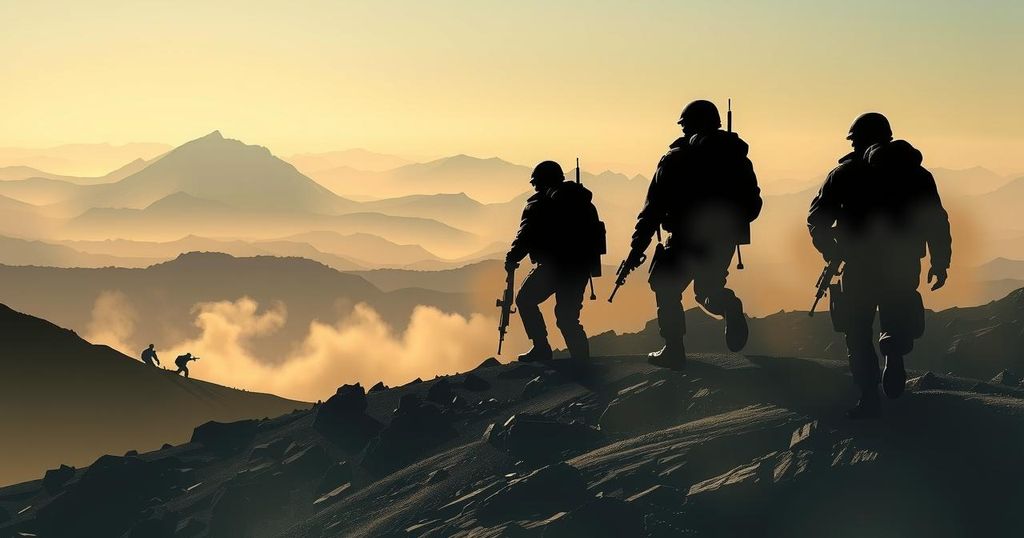Rwanda-backed M23 fighters advanced in eastern DR Congo, capturing Goma and prompting urgent calls for negotiations amid rising humanitarian crises. The Congolese government faces increased international pressure to address the conflict, while local residents endure severe shortages. Protests erupted in Kinshasa over perceived governmental inaction, and M23’s advance could potentially escalate beyond eastern DR Congo, raising regional concerns.
On Wednesday, Rwanda-backed M23 fighters made significant advances in eastern DR Congo, capturing substantial areas in the city of Goma after intense clashes with the Congolese military. The ongoing conflict has prompted urgent calls for negotiations from Angola, alongside increasing international criticism regarding the situation, which threatens a humanitarian crisis as the DR Congo’s government calls for global intervention against the M23’s operations.
Following the assaults, calm gradually returned to Goma, the capital of North Kivu, though residents faced dire conditions, with reports of hunger and lack of medicine. Local citizens voiced their fears of water scarcity, stating, “There is hunger in Goma. We have to go get water from the lake and we have no medicine,” highlighting the significant humanitarian toll of the conflict.
Congolese President Felix Tshisekedi declined to meet with Rwandan President Paul Kagame in response to the escalating violence, despite pressures for a peaceful resolution. The East African Community urged the Congolese government to directly engage constituents, including M23 representatives, in pursuing a lasting resolution to the crisis.
M23 fighters entered Goma on a recent Sunday, taking control of strategic locations including the airport. Following days of conflict, they pressed further into South Kivu without resistance, resulting in a heightened humanitarian crisis, as the UN estimates around 500,000 people displaced and increased levels of food and water shortages.
Amidst this turmoil, Goma remains largely under the control of M23 fighters, with reports of looting and the public’s fear of isolation due to electricity outages. Protests erupted in Kinshasa against nations viewed as ineffective in halting the unrest, leading to the government banning future demonstrations after violent incidents, including attacks on foreign embassies.
In the backdrop of international demands for an end to the M23 advance, Rwanda’s ambassador asserted that the offensive would persist, potentially extending beyond eastern DR Congo. Experts have corroborated claims of Rwanda’s involvement, although the Rwandan government denies these assertions, insisting their military actions are aimed at dismantling threats posed by DR Congo-based armed groups.
The ongoing conflict in eastern DR Congo, particularly involving the M23 rebel group, has deep roots in the historical tensions following the 1994 Rwandan genocide. The area is rich in minerals, which has drawn both local and international interests, complicating the conflict. The DR Congo’s plea for international intervention highlights the urgency of the situation, as years of violence have displaced millions and created a humanitarian crisis. With a history of rebel movements in the region, the dynamics are further complicated by Rwanda’s alleged involvement, raising questions about regional stability and the exploitation of resources.
The situation in eastern DR Congo has escalated significantly, with M23 fighters advancing and capturing key areas, prompting claims of a profound humanitarian crisis. The lack of effective political negotiations amidst rising tensions exacerbates the plight of local citizens facing shortages and violence. Continued international scrutiny and pressure on both the Rwandan government and the Congolese leadership may be essential in fostering dialogue and pursuing a viable resolution to the ongoing conflict.
Original Source: www.wfxg.com




